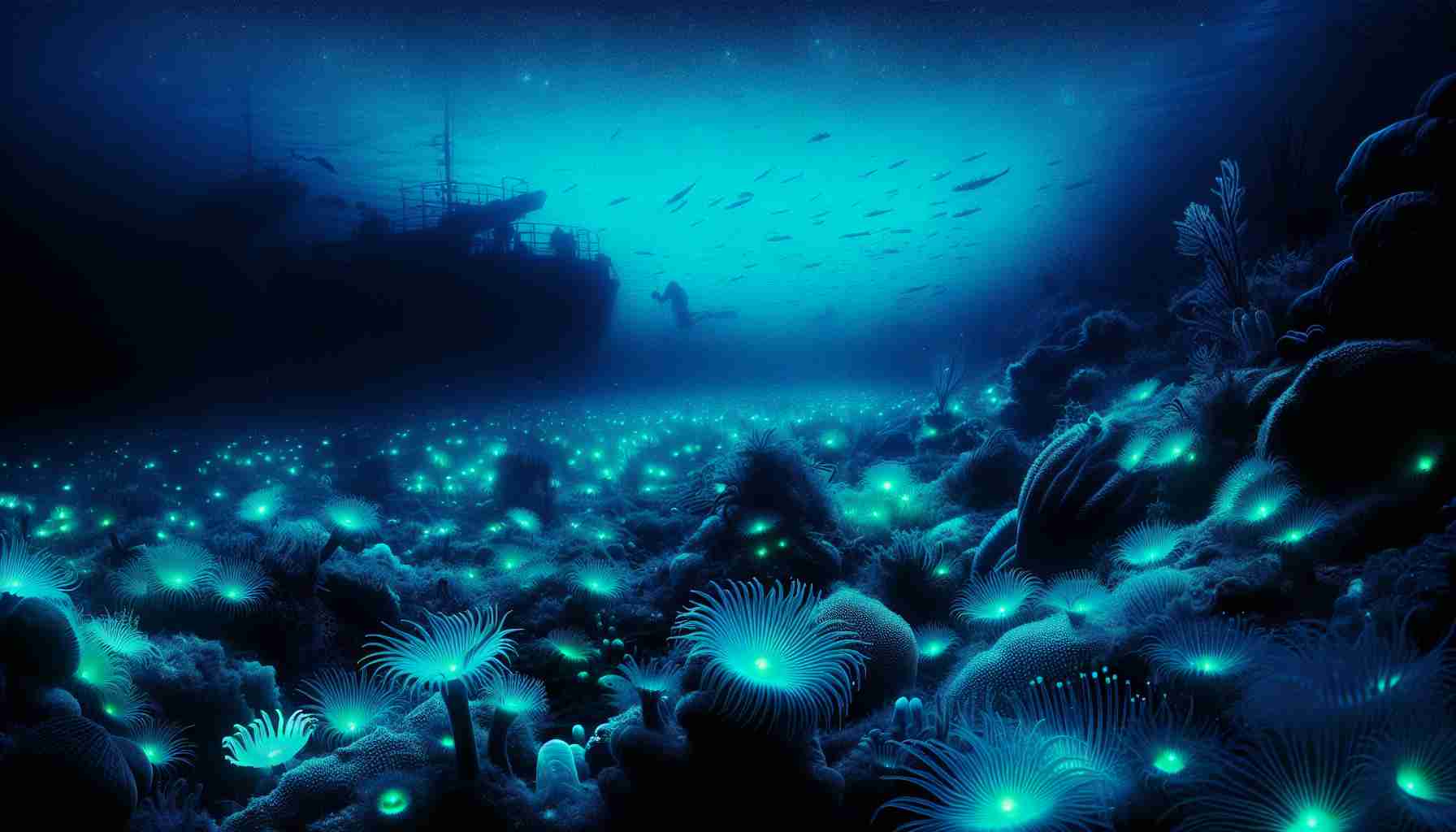Exploring the Depths: Unveiling the Mysteries of the Deep Sea
Researchers have recently uncovered a hidden world beneath the ocean’s surface, teeming with life forms yet to be discovered. Delving into the abyss, scientists have encountered a variety of intriguing species adapting to extreme conditions.
One remarkable finding is the existence of bioluminescent creatures emitting a mesmerizing glow in the darkness of the deep sea. These unique organisms have evolved to produce their own light, illuminating the mysterious depths where sunlight barely penetrates.
Moreover, deep-sea explorations have revealed a diverse range of ecosystems, from vibrant coral reefs to hydrothermal vents releasing mineral-rich waters. These environments support a plethora of species, each finely attuned to survive in this harsh, unforgiving realm.
Among the most captivating discoveries are the deep-sea fish with bizarre adaptations, such as transparent bodies and elongated jaws designed for capturing prey in the dark abyss. These extraordinary creatures showcase the remarkable wonders of evolution in the depths of the ocean.
As scientists continue to unravel the secrets of the deep sea, each expedition unveils new revelations about this enigmatic world. The exploration of the ocean’s depths not only expands our understanding of marine life but also highlights the importance of preserving these fragile ecosystems for future generations to explore and appreciate.
Exploring the Depths Further: Unlocking the Mysteries of the Deep Sea
Researchers have only scratched the surface of the profound mysteries concealed within the depths of our oceans. As they venture deeper into these uncharted waters, they are faced with a multitude of questions that continue to challenge our understanding of this enigmatic world.
What lies in the uncharted territories of the deepest ocean trenches? The deepest parts of the ocean remain largely unexplored, leaving us to ponder the undiscovered life forms and unimaginable wonders that may exist in these remote and inhospitable environments.
How do deep-sea organisms withstand immense pressure and extreme temperatures? Surviving in the extreme conditions of the deep sea requires exceptional adaptations that allow creatures to thrive where conventional life would struggle to exist. Understanding these adaptations presents a fascinating area of study for scientists.
What impact does human activity have on deep-sea ecosystems? With increased deep-sea mining and fishing activities, there is growing concern over the potential disruption and destruction of delicate deep-sea ecosystems. Balancing the need for resource exploitation with conservation efforts poses a significant challenge.
Delving into the depths of the ocean unveils a world of unparalleled marvels, but it also brings forth a set of key challenges and controversies that warrant consideration.
Advantages:
– Deep-sea exploration uncovers valuable insights into the diversity of life forms and ecosystems that exist beyond our everyday perception.
– Discoveries in the deep sea can lead to scientific advancements, such as the development of new biotechnologies inspired by unique deep-sea organisms.
– Understanding deep-sea ecosystems can inform conservation efforts to protect these fragile environments from exploitation and degradation.
Disadvantages:
– The extreme depths and pressures of the deep sea make exploration costly and logistically challenging, limiting the scope of research in these areas.
– Human activities such as deep-sea mining can have detrimental effects on the delicate balance of deep-sea ecosystems, potentially leading to irreversible damage.
– The ethical considerations surrounding deep-sea research, particularly related to the disturbance of fragile habitats and species, are subjects of ongoing debate.
As we continue to unlock the secrets of the deep sea, it is essential to approach this exploration with care and foresight, ensuring that our quest for knowledge does not come at the expense of the very environments we seek to understand and protect.
For more information on deep-sea exploration and the fascinating discoveries that await us beneath the waves, visit National Geographic.










